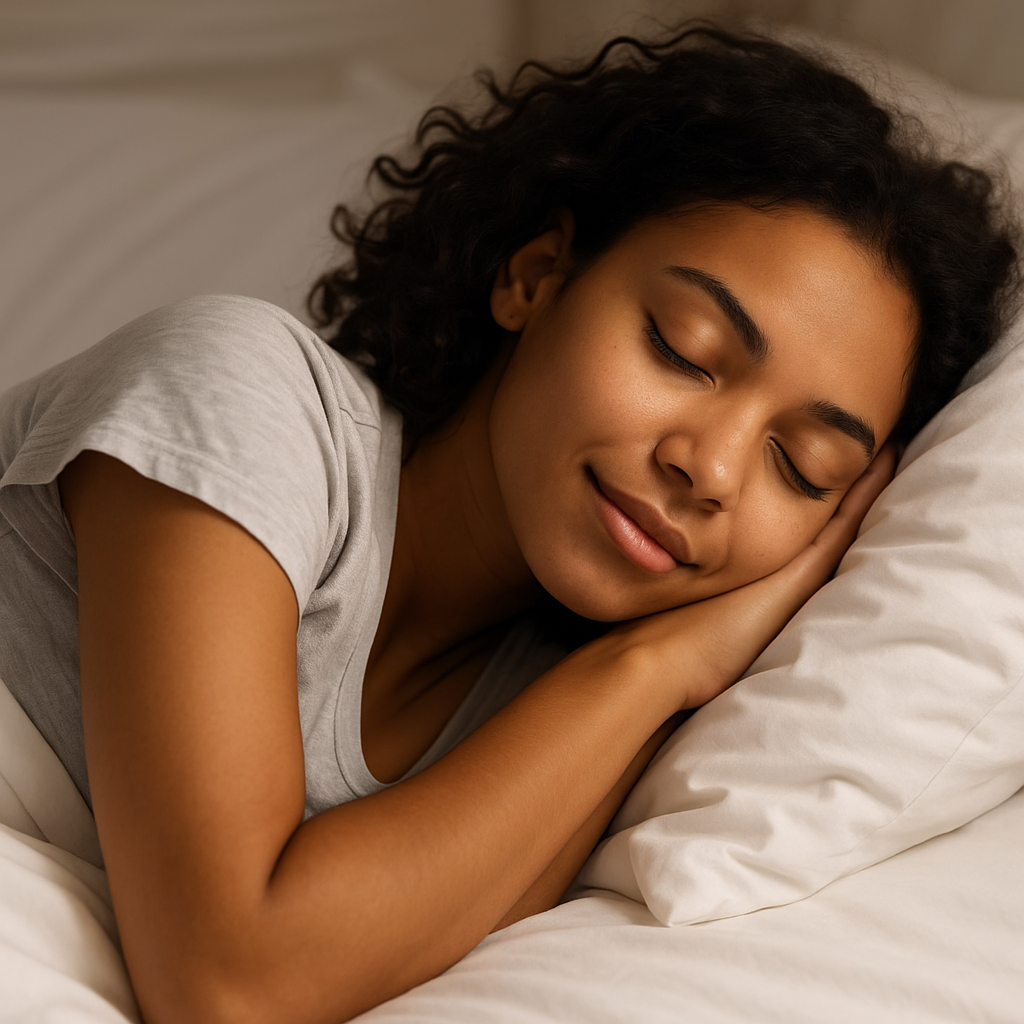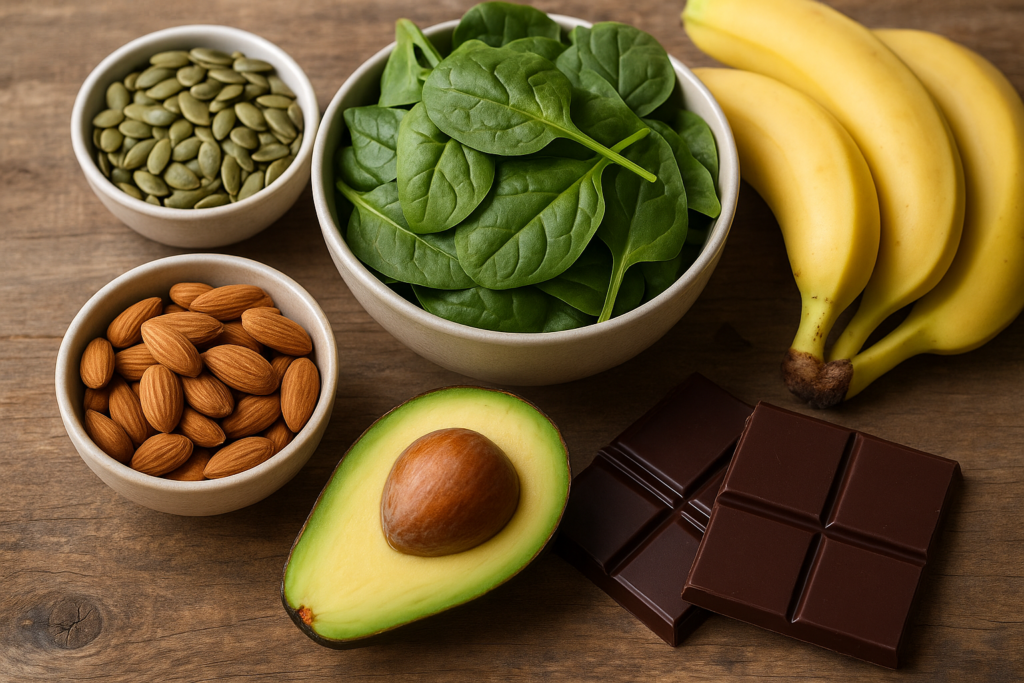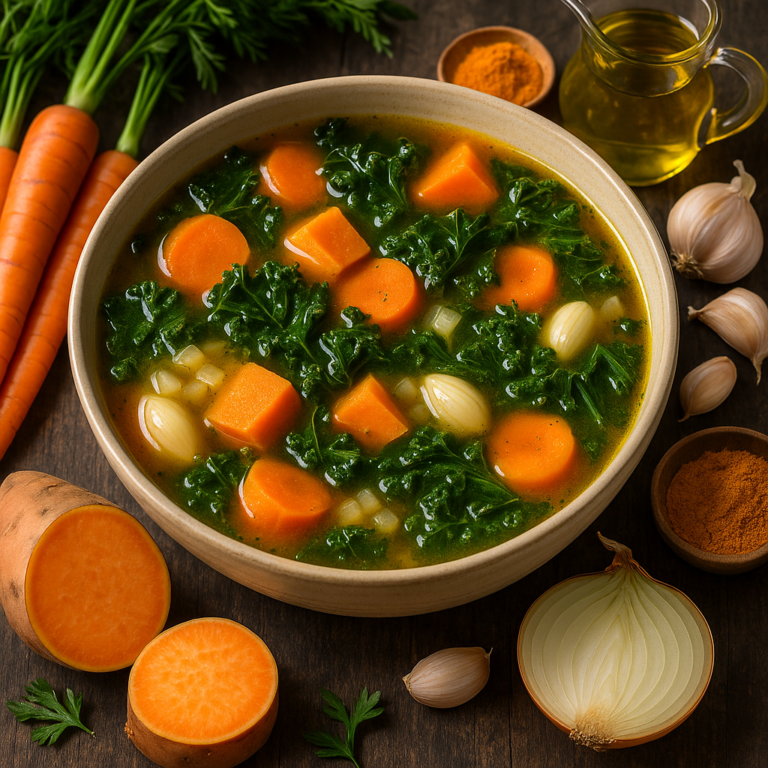Is Magnesium Good for Sleeping? 6 Powerful Foods and the Supplement That Help

Is Magnesium Good For Sleeping? Lets dive in and discover the truth behind this question, and help you get better rest once and for all.
If you’ve ever tossed and turned at night with thoughts racing, and trying to figure out why you can’t sleep, you’re not alone. Millions of people struggle with restless, sleepless nights.
The good news is that science shows that certain nutrients play a direct role in calming the mind, and helping the body drift into deep, restorative sleep. While there are endless tricks to help you sleep, one mineral stands out as one of the most effective, and natural solutions known as magnesium.
Magnesium is often called the “relaxation mineral” because of its powerful role in calming the nervous system, easing muscle tension, and helping your body slip into deep, restorative rest.
However, the truth is that most of us aren’t getting enough of it, and that’s why magnesium for sleep has become such a hot topic.
So what’s the best way to get magnesium? Do you need to overhaul your diet, start supplements, or reach for something more advanced? Let’s break it all down.
Is Magnesium Good For Sleeping? And The Different Forms Associated:
Magnesium is a vital nutrient involved in hundreds of functions throughout the body, but one of its most valuable roles is in promoting healthy sleep.
Magnesium helps to settle your nervous system down. It does this by influencing calming brain messengers and signal to your body that it’s time to wind down and rest.
If you’ve ever asked yourself:
- Is magnesium good for sleeping?
- Which is the best magnesium for sleep?
- What is the best type of magnesium for sleep?
Yes, it can make a difference,. However, they’re not all the same.
Low magnesium is strongly linked to having insomnia. It is even linked to anxiety. So when you raise your levels of magnesium, you become more relaxed.
Magnesium For Sleep- Foods That Help You Sleep Better:

If you love a food first approach (and this is a recipe site for a reason), here are the top natural sources of magnesium you can add to your dinner plate:
- Pumpkin seeds – Is one of the best sources, and has about 150 mg per ounce.
- Spinach – Has a plethora of magnesium.
- Almonds – Can give you a boost of protein, and magnesium.
- Avocados – Creamy, delicious, and a great source of sleep friendly magnesium.
- Dark chocolate – Yes, the good stuff (70%+ cocoa) has magnesium. Just try not to eat too much sugar right before bed.
- Bananas – Has a combination of potassium and magnesium together to relax the muscles.
Tip: Make a magnesium friendly evening snack. Think dark chocolate, almonds, and sliced banana. It’s comforting, delicious, and naturally sleep supportive.
If you want to also incorporate your dinner menu to gear up towards a restful night, include a salad with: spinach, almonds, or avocado.
Why Food Alone Isn’t Always Enough:
While these foods are great, are healthy and work well, most people fall short of daily magnesium needs (around 300–400 mg). Bad digestion, Stress, caffeine, alcohol, all lower magnesium levels.
A lot of the time, that’s why many people eat a decent diet, but still lie awake at night. Food is the foundation and baseline, but it usually needs to be reinforced. That’s where sleep aids and supplements come in. The more natural, the better!
Which Is The Best Magnesium For Sleep?:
The best type of magnesium for sleep isn’t just about falling asleep faster, it’s about finally staying asleep and waking up refreshed.
If you’ve ever tried a sleep supplement and felt nothing, you probably had the wrong type.
- Magnesium Glycinate – Is calming, gentle on the stomach and absorbs well. This form is often considered for reducing anxiety, and supporting deeper sleep.
- Magnesium Citrate – Also absorbable, but may have a mild laxative effect (better in small doses at night). It’s commonly used for digestion, but also effective at relaxing muscles. It can be useful if stress and tension keep you awake.
- Magnesium Oxide – Cheap and common, but poorly absorbed. Not ideal for sleep. It’s less effective for sleep since it isn’t absorbed as well. Mostly used for digestion.
- Magnesium Threonate: Can cross the blood and brain barrier, which makes it effective for calming the mind and reducing overthinking before bed.
So if you’ve ever wondered which magnesium is best for sleeping, the most recommended are magnesium glycinate and magnesium threonate.
The Smarter All in One Formula:
Here’s where things get interesting: while magnesium alone helps, the best results usually come from combining it with other natural sleep boosters.
Unlike single ingredient magnesium pills, a sleep supplement that combines magnesium with the following will work at helping you to fall asleep the best:
- Melatonin – Your body naturally produces this hormone for sleep.
- GABA & L-Tryptophan – Calming compounds that slow down racing thoughts.
- Ashwagandha & Hops – Herbs that help to take the edge off from stress.
Instead of piecing together a dozen supplements (and guessing at doses), this formula works synergistically to target every angle of sleepless nights.
You won’t just fall asleep faster, but you’ll be able to stay asleep throughout the night, and wake up feeling refreshed.
Learn the root causes of why you can’t sleep and fix it for good… Naturally
Learn More Now




